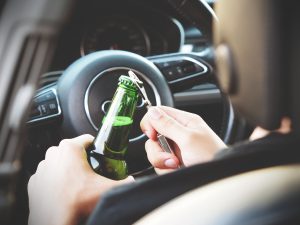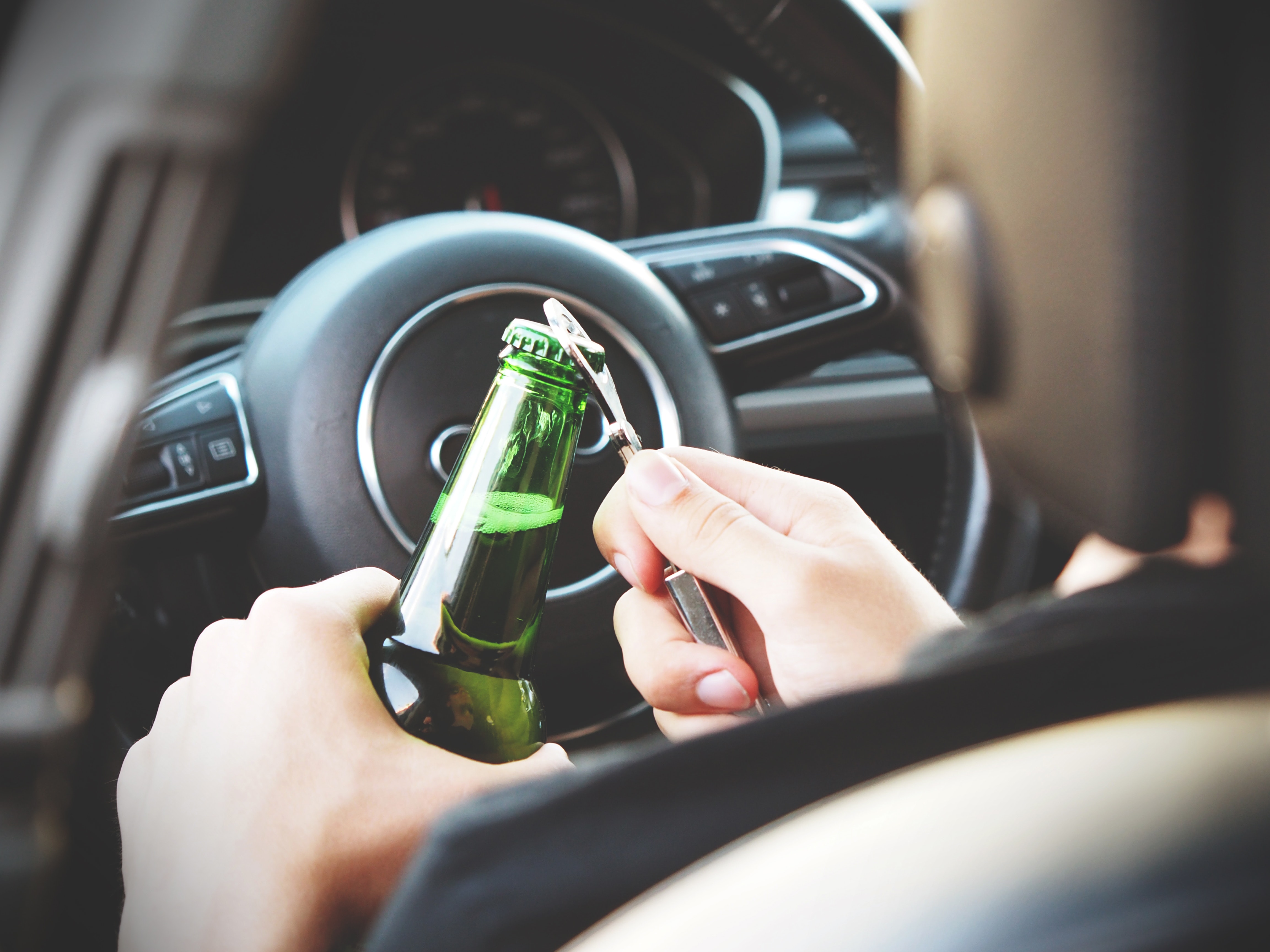
Types of Cases
Under N.J.S.A. 39:4-50, a driver found with a blood alcohol content (BAC) of 0.08% or greater can be charged with DWI/DUI. The penalty depends on a variety of factors, including whether it is a first or repeat offense, past traffic convictions, how far the BAC exceeds the legal limit, and circumstances that led to that charge (e.g., accident vs. traffic stop).
Furthermore, it is considered a DWI when a person operates a motor vehicle while under the influence of a narcotic, hallucinogenic, or habit producing drug. This encompasses a very wide range of substances, including marijuana, opiates, cocaine, meth, and fentanyl. If you are in possession of illicit substances, you can face further charges associated with them.
Even if you are not driving the car, and just “sleeping it off” in a public area you can be considered in violation of the drunk driving statute. New Jersey does not distinguish between an “active” driver and a stationary driver. If your engine is simply on, you can still be charged.

 Impact of a DUI/DWI
Impact of a DUI/DWI
Being convicted for drunk driving carries serious repercussions for a person’s life. It could involve jail time, license suspension and revocation, hefty fines, and a stain on one’s record. The following summarizes the penalties and fines for a DUI/DWI conviction in New Jersey:
Penalties and Fines
- Jail time: A first conviction for DUI in the state means potentially spending up to 30 days in jail. A second conviction within 10 years can mean up to 90 days in jail and a third can lead to up to 180 days in jail.
- IDRC: In addition to jail time, a judge can order a driver to spend between 12 and 48 hours in an Intoxicated Driver Resource Center.
- License suspension: For a first DUI conviction, drivers can lose their license for up to six months, depending on their BAC. A second conviction means a possible suspension of up to two years. A third conviction can mean losing one’s license for up to 8 years. Moreover, a license suspension can lead to job loss if the driver is unable to get to work by any other means.
- Fine: Drivers face a fine of $250 to $400 for a first DUI offense. Drivers with a BAC of more than 0.10 can be fined between $300 and $500. A second offense, regardless of BAC, comes with a fine of $500 to $1,000. A third offense carries a fine of $1,000.
- Surcharge: New Jersey charges a surcharge of $1,000 each year for three years upon conviction for DUI ($3,000 total). The same surcharge applies to a second conviction. A third means a surcharge of $1,500 per year for three years ($4,500).
- Other fees: Drivers can also face over $500 in fees associated with a DUI conviction, including contributions to the Safe Neighborhood Services Fund (SNSF), Drunk Driving Enforcement Fund (DDEF), and the Alcohol Education and Rehabilitation Fund (AERF).

How Do New Jersey Police Detect a DUI/DWI?
New Jersey police look for specific driving habits and behaviors when determining when to pull someone over under suspicion of drunk driving. The behavior does not have to violate a specific traffic law. For example, he or she may pull over a driver who hesitates before passing through a green light, or who is going unusually slow on otherwise clear roads. Police may also stop cars that drift from side to side within a lane.
Once a driver has been pulled over, the officer will observe his/her behavior to determine whether he or she has been drinking. The officer could attempt to smell alcohol on one’s breath or look for redness in the eyes.
If any of those signs arouse further suspicions, the officer may ask the driver to submit to some field sobriety tests. These tests can include the following challenges:
- Walking in a straight line with the heel of one foot touching the toe of the other, turning, and repeating
- Watching a moving object using only the eyes and keeping the head still
- Keeping arms to the side while standing on one foot
Drivers who fail these tests can be placed under arrest for DUI. Many officers also ask drivers to submit to a breathalyzer test. If the breathalyzer test determines the driver is above the legal limit, he/she will be charged with a per se violation of New Jersey DUI laws.
Refusing a Breathalyzer Test
Refusing to take a breathalyzer test is a serious offense and can have severe consequences regardless of whether or not one is convicted of DUI. This can include a license suspension of up to one year, a fine of $300 to $500, and the required installation of an ignition interlock device.
How NJ Police Identify Drivers Under the Influence of Drugs
While the presence of alcohol in one’s body can be easily tested at the time of a traffic stop or arrest, determining whether a person is under the influence of drugs (DWI drug) is a more difficult matter. There are many different kinds of drugs that can affect a person’s ability to drive and the exact effects can vary.
In New Jersey, a driver who is suspected of DWI-drug will be taken to the police station where he/she will be examined by a Drug Recognition Expert (DRE). This specially trained officer will then administer a 12-step evaluation, which includes looking a pupils, examining muscle tone, basic vital signs. Some of the more common field sobriety tests may also be used.
Underage DWI/DUI
Drivers under the age of 21 are held to a higher standard than those who are legally able to drink. A person under 21 cannot have any trace of alcohol (0.01% BAC) in their bloodstream. Underage drivers with a BAC less than 0.08% will face a lesser charge commonly referred to as a “Baby DUI” but this name is misleading! An underage DUI is serious and can result in a license suspension of up to 90 days, community service, and mandatory participation in a rehabilitation program. Drivers with a BAC of more than 0.08% will face the full penalties of a DUI regardless of age.
How a NJ DUI Affects Out-of-State Drivers
Living outside the state does not shield one from the impact of a DWI conviction in New Jersey. The Garden State is one of many states that participate in information-sharing agreements such as the Driver’s License Compact. This agreement means that any time New Jersey convicts an out-of-state driver of a traffic violation—no matter how small—it is communicated to other member states, who in turn agree to record the offense. Even if one’s home state does not participate in the compact, the NJMVC is still likely to reach out and attempt to communicate the conviction.
While New Jersey cannot suspend an out-of-state driver’s license, it can suspend someone’s right to drive within NJ state limits. Moreover, most compact participants reserve the right to suspend a person’s license upon conviction of an offense in another state that would have warranted a suspension at home. In other words, a New Yorker convicted of DWI in New Jersey could have his/her license suspended by the NY DMV despite the conviction taking place across state lines.
Open Container Law In New Jersey
It is illegal to have an open container of alcohol in your vehicle in New Jersey. This applies to you if you are stopped on a highway and even if your vehicle is parked in a parking lot. Any container that has its factory seal broken and whose alcohol content is more than 0.5% falls under the open container law. Though the penalties are much less severe than a DUI/DWI, first time violations of the open container law still carry a fine of $200 and will appear on one’s driving record. Subsequent violations may carry additional penalties. For more information, see our other page further detailing the law on this.
Penalty Chart
| First Offense (0.08 to 0.10) | First Offense (0.10+) | Second Offense | Third Offense | |
|---|---|---|---|---|
| Jail time | 30 days | 30 days | 90 days | 180 days |
| IDRC | 12 to 48 hours | 12 to 48 hours | 12 to 48 hours | 12 to 48 hours |
| Ignition Interlock Device | 3 months | 7 months to 1 year | 2 to 4 years after end of suspension | 2 to 4 years after end of suspension |
| Suspension | No suspension | No suspension (unless under influence of narcotics) | 1 to 2 years | 10 years |
| Fine | $250 – $400 | $300 – $500 | $500 – $1,000 | $1,000 |
| Surcharge | $1,000/year for 3 years | $1,000/year for 3 years | $1,000/year for 3 years | $1,000/year for 3 years |
| IDRC fee | $230 | $230 | $280 | $280 |
| DDEF | $100 | $100 | $100 | $100 |
| AERF | $100 | $100 | $100 | $100 |
| SNSF | $75 | $75 | $75 | $75 |
| Total Fines & Fees | $3,755 – $3,905 | $3,805 – $4,005 | $4,005 – $4,505 | $4,505+ |
 Case Law Analysis
Case Law Analysis
 What Should You Do if You Get a DUI?
What Should You Do if You Get a DUI?
If you have received a DUI, it is important to reach out to an attorney. While it may seem possible to muddle through the legal process on your own, an experienced attorney will have many such cases under their belt and will put you in a much better position to deal with the charge. They will be able to navigate the maze of the legal process much more effectively, and are better trained to speak to a judge about your case. A good attorney can help plead down your charge and avoid more severe consequences. For these reasons, retaining an attorney can be the make or break in the outcome of your DUI charge.
If you or a loved one has been charged with DUI or any criminal offense in New Jersey, contact an attorney for help. The lawyers at Rosenblum Law are skilled criminal defense attorneys with experience helping people prove their innocence (in a DUI case, DWI case or otherwise) and protect their rights. Email Rosenblum Law or call 888-815-3694 today for a free consultation about your case.
 Frequently Asked Questions
Frequently Asked Questions
No. New Jersey considers driving while intoxicated to be a traffic violation. A conviction does not mean having a criminal record. However, it can lead to jail time and a host of other penalties. In addition, a DWI can show up on employment background checks, which means it can have a similar negative effect as having a criminal record.
This is a bad idea for two reasons. First, NJ police do not need a breathalyzer to charge a person with drunk driving; an officer’s observations of the driver’s behavior are sufficient evidence to potentially convict. Second, refusing a breathalyzer carries its own serious consequences regardless of whether or not one is convicted of drunk driving as explained above.
Not necessarily. It is not always easy for a person to tell how alcohol is affecting them. Just because someone feels in control of their actions does not mean that their actions aren’t delayed or their speech isn’t slurred. Moreover, one’s “tolerance” for alcohol has little bearing on their BAC level, which is determined solely by the amount of alcohol present in the bloodstream.
In most cases NJ courts do not accept plea deals on DWI/DUI cases. This means a person must either beat the charge (which will require the help of an attorney) or plead guilty. However, in special cases a plea bargain may be possible and in any event some of the penalties may be negotiable which is why it’s important to have a skilled attorney by your side, among other reasons.
It depends on the details of the case, including the circumstances surrounding the arrest, the driver’s BAC, past driving history, and more. It can even depend on the judge and the prosecutor involved. An attorney can help evaluate all of these details to determine the best course of action.
It’s unlikely. There is a lot of advice on the internet on how to beat drunk driving charges, but most of it is written by amateurs with little or no legal experience. In addition, the experience of standing before a judge and answering questions from a prosecutor can be intimidating. A person also may come to make admissions of guilt and not even realize it. A skilled NJ traffic ticket attorney will know what to do, what to say, and how to say it. More so, an experienced attorney will not be fazed by a judge or prosecutor’s questioning and is likely to anticipate a number of questions based on past cases.
No. New Jersey considers DWI a traffic offense, not a crime. Therefore, it cannot be segregated from the driving record. In addition, all traffic offenses remain on one’s driving record for life. That means a single conviction can haunt a person 10, 20, even 50 years later!
Drivers who do not or cannot pay the fines, fees and surcharges associated with a DWI conviction in NJ can have their license suspended indefinitely. In addition, a person could have their wages garnished or find themselves facing a lien on their property. More importantly, an arrest warrant can be issued.


